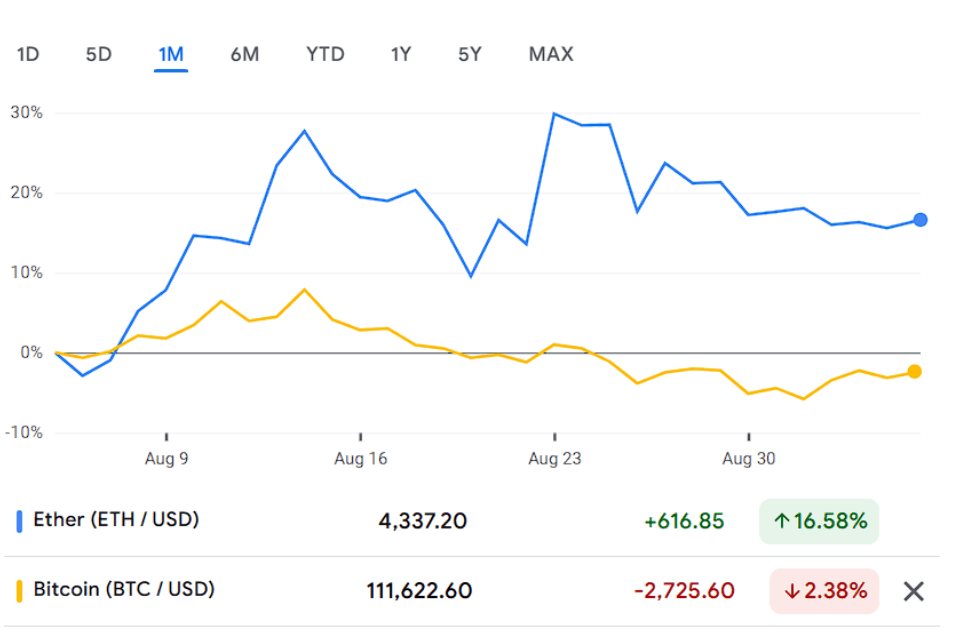Loading...
Crypto News
Latest in Crypto News

Cryptocurrency Outlook, June 2025
Throughout the first half of 2025, the cryptocurrency market has demonstrated a significant correlation with macroeconomic conditions. As reported by Citi Research, the resilience of the…

Binance and Avalanche Cryptocurrency Outlook, 2025
In the rapidly evolving and often tumultuous world of cryptocurrencies, two significant entities have emerged as pivotal players: Binance and Avalanche (AVAX). These platforms are not…

Coinbase $400M Data Breach
In May 2025, Coinbase, the largest cryptocurrency exchange in the United States, announced a major data breach. This breach affected the sensitive information of around 70,000…

Cardano (ADA) Outlook: Can Blockchain’s Green Giant Surpass Expectations
As of May 2025, Cardano trades at about $0.75. Recent price movements show a growing bullish momentum that investors should observe. Cardano distinguishes itself in the…

Trump Coin: The Controversy of a Presidential Cryptocurrency
In January 2025, President Donald Trump made headlines. This occurred just days before his anticipated second inauguration. He launched his own cryptocurrency, known as the $Trump…

Latest Cryptocurrency Regulations: Changes Investors Must Watch
Cryptocurrency has rapidly evolved into a significant component of the global financial system, capturing the attention of a diverse range of stakeholders. Digital assets are increasingly…

Coinbase: From Bitcoin Startup to Leading Crypto Exchange
Table of Contents Risk Disclaimer The information on this page is provided for general information only and does not constitute investment, tax or legal advice. Trading…

Could XRP Be the Next Crypto Breakout? Analysts Weight in on Ripple’s Future
Table of Contents Risk Disclaimer The information on this page is provided for general information only and does not constitute investment, tax or legal advice. Trading…

What’s Next for PEPE Coin? Price Prediction and Analysis
Table of Contents Risk Disclaimer The information on this page is provided for general information only and does not constitute investment, tax or legal advice. Trading…

Ethereum vs Solana: Overview and Forecast
Table of Contents Risk Disclaimer The information on this page is provided for general information only and does not constitute investment, tax or legal advice. Trading…

Dogecoin Surges, Cardano Innovates: Two altcoins shaping the future of Crypto
Table of Contents Dogecoin (DOGE) and Cardano (ADA) have recently garnered considerable attention from both investors and cryptocurrency enthusiasts alike. As of May 2025, Dogecoin trades…

Bitcoin trades in ascending channel, is the digital gold poised for New Highs?
Table of Contents As of May 5, 2025, Bitcoin is trading at $96,266 trading near its all time highs. Indeed, the world’s first decentralized digital currency…

How Cryptocurrency is Reshaping Global Finance in 2025
Risk Disclaimer The information on this page is provided for general information only and does not constitute investment, tax or legal advice. Trading or investing in…

Cryptocurrency Outlook, June 2025
Throughout the first half of 2025, the cryptocurrency market has demonstrated a significant correlation with macroeconomic conditions. As reported by Citi Research, the resilience of the…

Binance and Avalanche Cryptocurrency Outlook, 2025
In the rapidly evolving and often tumultuous world of cryptocurrencies, two significant entities have emerged as pivotal players: Binance and Avalanche (AVAX). These platforms are not…

Coinbase $400M Data Breach
In May 2025, Coinbase, the largest cryptocurrency exchange in the United States, announced a major data breach. This breach affected the sensitive information of around 70,000…

Cardano (ADA) Outlook: Can Blockchain’s Green Giant Surpass Expectations
As of May 2025, Cardano trades at about $0.75. Recent price movements show a growing bullish momentum that investors should observe. Cardano distinguishes itself in the…

Trump Coin: The Controversy of a Presidential Cryptocurrency
In January 2025, President Donald Trump made headlines. This occurred just days before his anticipated second inauguration. He launched his own cryptocurrency, known as the $Trump…

Latest Cryptocurrency Regulations: Changes Investors Must Watch
Cryptocurrency has rapidly evolved into a significant component of the global financial system, capturing the attention of a diverse range of stakeholders. Digital assets are increasingly…

Coinbase: From Bitcoin Startup to Leading Crypto Exchange
Table of Contents Risk Disclaimer The information on this page is provided for general information only and does not constitute investment, tax or legal advice. Trading…

Could XRP Be the Next Crypto Breakout? Analysts Weight in on Ripple’s Future
Table of Contents Risk Disclaimer The information on this page is provided for general information only and does not constitute investment, tax or legal advice. Trading…

What’s Next for PEPE Coin? Price Prediction and Analysis
Table of Contents Risk Disclaimer The information on this page is provided for general information only and does not constitute investment, tax or legal advice. Trading…

Ethereum vs Solana: Overview and Forecast
Table of Contents Risk Disclaimer The information on this page is provided for general information only and does not constitute investment, tax or legal advice. Trading…

Dogecoin Surges, Cardano Innovates: Two altcoins shaping the future of Crypto
Table of Contents Dogecoin (DOGE) and Cardano (ADA) have recently garnered considerable attention from both investors and cryptocurrency enthusiasts alike. As of May 2025, Dogecoin trades…

Bitcoin trades in ascending channel, is the digital gold poised for New Highs?
Table of Contents As of May 5, 2025, Bitcoin is trading at $96,266 trading near its all time highs. Indeed, the world’s first decentralized digital currency…

How Cryptocurrency is Reshaping Global Finance in 2025
Risk Disclaimer The information on this page is provided for general information only and does not constitute investment, tax or legal advice. Trading or investing in…






